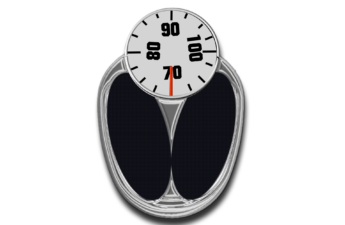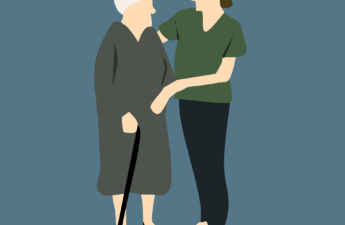Category: Diet
What is ‘fried rice syndrome’? A microbiologist explains this type of food poisoning – and how to avoid it
Enzo Palombo, Swinburne University of Technology A condition dubbed “fried rice syndrome” has caused some panic online in recent days, after the case of a 20-year-old who died in 2008 was resurfaced on TikTok. “Fried rice syndrome” refers to food…
Millions of older people don’t get enough nutrients – how to spot it and what to do about it
Weight loss in older adults is a key sign of malnutrition that needs to be addressed – but it can be easily missed, especially when many older adults associate the idea of thinness with good health. But clothing that’s too loose or a watchstrap that floats on the wrist are all warning signs of undernourishment.
How much weight do you actually need to lose? It might be a lot less than you think
Losing just 5–10% of our body weight – between 6 (~13 lb.)and 12kg (~26 lb.) for someone weighing 120kg (~264 lb.) – can significantly improve our health in four key ways.
This salt alternative could help reduce blood pressure. So why are so few people using it?
It’s hard for people to change the way they cook, season their food differently, pick low-salt foods off the supermarket shelves and accept a less salty taste.
Now there is a simple and effective solution: potassium-enriched salt. It can be used just like regular salt and most people don’t notice any important difference in taste.
What the FDA Does Approve and What It Doesn’t
Is It Really “FDA Approved”? Maybe you’ve seen these words on a company’s website or in a commercial promoting a product or treatment. Here are some facts about products that are, and aren’t, FDA approved.
Hate salad or veggies? Just keep eating them.
Here’s how our tastebuds adapt to what we eat
DOH launchers interactive tool to connect people to Women, Infants, and Children (WIC) Nutrition Program
WIC provides monthly food benefits with an emphasis on healthy grocery items like milk, fruits, and vegetables. The program also assists with health screenings and referrals, nutritional education, and breast/chest-feeding support. WIC is for people who are pregnant, recently delivered a baby, who are breast/chest-feeding, and infants and children under 5 years old. Dads, grandparents, foster parents, or other guardians may also apply for WIC for their children.
What does weight-inclusive health care mean?
Weight-inclusive health care means a focus on better health with no weight loss required.
Can I actually target areas to lose fat, like my belly?
Our bodies decide where we store fat and where we lose it from first. And over-the-counter pills and supplements cannot effectively target fat loss either.
What is the OMAD diet? Is one meal a day actually good for weight loss? And is it safe?
Like most weight-loss programs, the OMAD diet makes big and bold promises. Here’s what you need to know about eating one meal a day and what it means for weight loss.
Prescriptions for fruits and vegetables can improve the health of people with diabetes and other ailments, new study finds
Patients’ blood sugar levels, blood pressure and weight improved.
Aging with a healthy brain: How lifestyle changes could help prevent up to 40% of dementia cases
By adopting positive lifestyle habits, we could theoretically prevent about 40 per cent of dementias. While there is no guarantee of warding off cognitive decline, people can greatly reduce their risk of dementia by increasing their physical activity levels, ensuring they are mentally active and increasing social contact, while avoiding smoking and limiting alcohol consumption.
Running on empty: Female athletes’ health and performance at risk from not eating enough
When the energy consumed from food becomes insufficient to meet the demands of high physical activity levels, a state of imbalance occurs called low energy availability. Low energy availability can disrupt hormones and metabolism in as little as five days.
Seven techniques to avoid weight regain, approved by experts
Losing weight is challenging. But as anyone who has ever successfully lost weight knows, it’s avoiding weight re-gain that’s the real challenge. But while weight regain may be a common experience, that doesn’t mean there aren’t many evidence-backed things you can still do to prevent it in the long run:
Australian study links holiday feasting to yo-yo weight gain
Easter, a time of chocolate eggs and hot cross buns, saw a an average gain of about 244g (0.29% of average participant body weight). The Australian summer months associated with Christmas and New Year, feasts and festivities, had an even larger average increase of approximately 546g (0.65% of average participant body weight). We also found a weekly cycle, with weight peaking on the weekend, when many people are likely letting their hair down after a busy work week and may be drinking and eating more.












